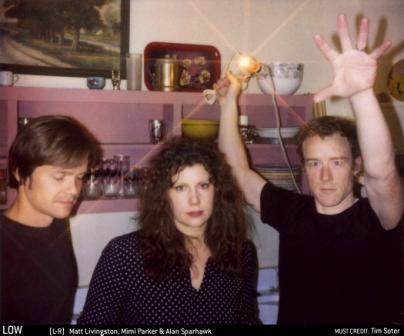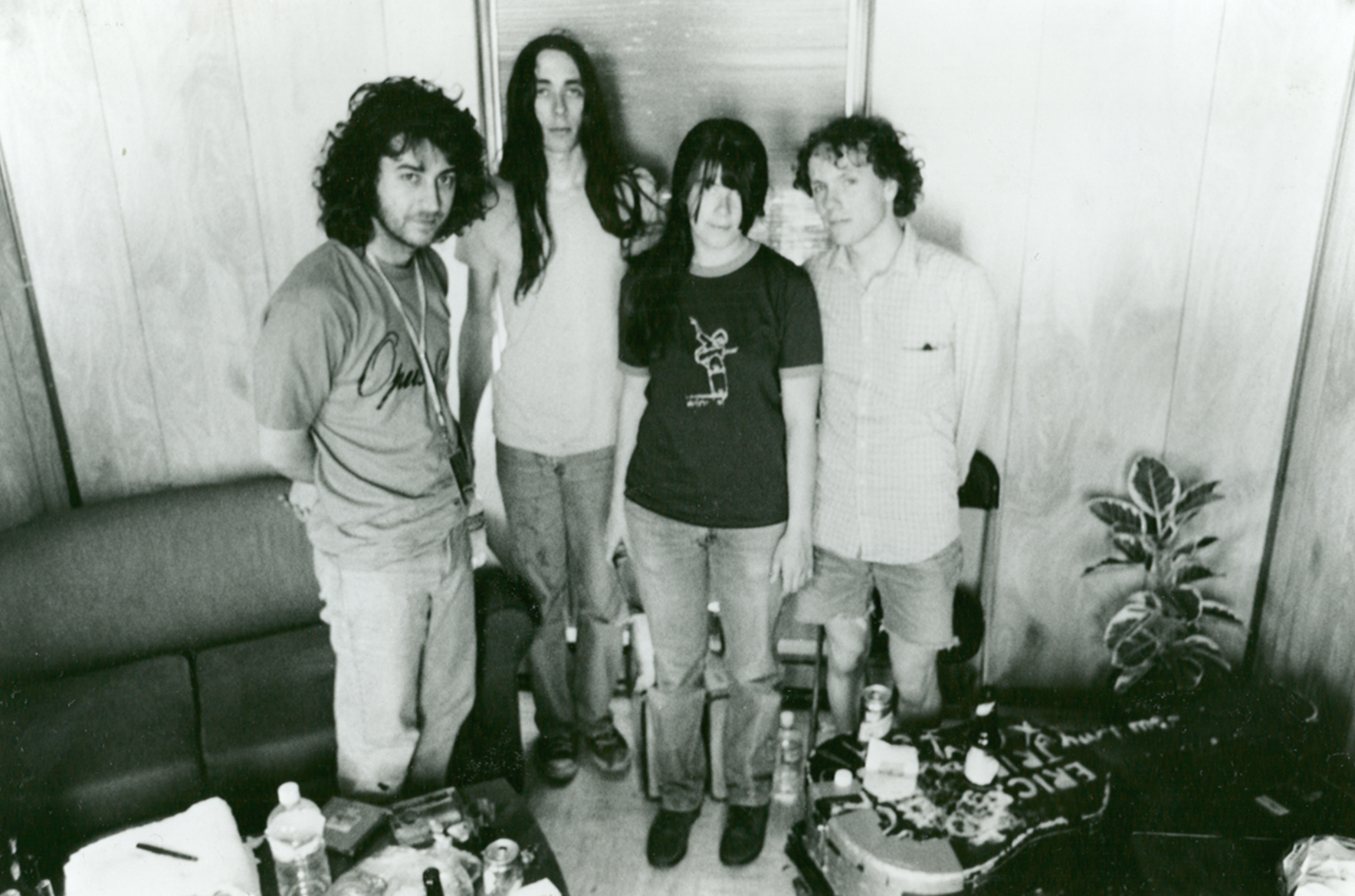When John Vanderslice turned in the politically charged Pixel Revolt, his fifth album in five years, which Barsuk released this summer, the label asked him to wait 18 months for his next album. Vanderslice doesn’t view his work as compulsive, though. To him, it’s a 9-to-5 job that approaches euphoria or drudgery, depending on the day. “A lot of musicians can’t believe how mundane it is to tour and try to make a living [from music], but I don’t think it’s any different than being a gardener, someone who makes cabinets or works in a bookstore. People can’t give up that idea that they’re exalted, and I think that’s a bunch of BS, so I try to make fun of them as much as I can.”
When not making the perpetual rounds in support of his work—he’s played Seattle approximately 549 times in the past two years—Vanderslice keeps busy at his studio in San Francisco. The gearhead behind the tricked-out Tiny Telephone, whose clients include everyone from Death Cab to Deerhoof, Vanderslice admits to being fairly dogmatic about the studio’s preference for analog equipment. “I love what computers do, but not for recording,” Vanderslice says. “Part of the content of art is the way it looks and sounds. It’s not just an afterthought.” He cites Four Tet as one of the few artists who are seizing the radical potential of hard-disk recording. “It’s unbelievable, badass stuff. If [people are] making Kid A, I’m all for it, but rock bands are usually cleaning things up, making it friendly and correct. They start worrying about the dumbest shit you’ve ever seen. It de-sexes music.”
Not everyone is using ProTools to wring the sensuality and power from their work, as Vanderslice acknowledges in his devotion to hip-hop (he even penned a Pitchfork article in 2002, “Louder Than a Bomb: 10 Rap Moments”). Stylistically, the Game’s brooding bravado may be a quantum leap from Vanderslice’s tortured narrator and characters, but they’re each engaged in the art of storytelling. “In hip-hop, that’s the general expectation, and the default is to talk about your life. That’s not necessarily the case in indie rock,” says Vanderslice, who appreciates R. Kelly’s absurd tales as much as the socially aware—and incendiary—antics of more hardcore artists. “People like Immortal Technique—this half-Peruvian, half-black guy from New York—he makes [confrontational rapper] Paris look like De La Soul. He’s so unforgiving and specific about his criticisms of the U.S. government,” he says. While Vanderslice’s lyrics aren’t as outrageous, Pixel appears to be the most outspoken release of the year yet. “Because it’s hard to make political stuff nuanced, people shy away from it,” he says. “I am just so filled with rage all the time that I can’t.”
Those feelings birthed the album’s first batch of songs, including “Plymouth Rock,” the story of a young soldier who dies early in his first tour; “Exodus Damage,” about a militant who questions his position while watching the towers fall on TV; and “Trance Manual,” where an American journalist seeks solace with an Iraqi prostitute. The vignettes are soundtracked with playful, only slightly melancholy instrumentation, giving the album a benign, easy-listening air if you aren’t listening closely. “Radiant With Terror” is the sole number that hits like a sucker punch, with its foreboding backbone of bells and bass (think Smashing Pumpkins’ “Disarm”) and lyrics adapted from poet Robert Lowell’s “Fall 1961,” a tirade against the nuclear threats of that time. “The Cold War was used as a way to control the debate about our foreign policy and what we were doing from an imperial standpoint around the globe—and the language of that poem sounds so modern to me,” says Vanderslice, who brings it into the now by substituting “dirty bomb” for “nuclear war.”
Somewhere in the process of articulating his anger on Pixel, the wanna-be revolutionary camping in Vanderslice’s brain switched gears and became a lover. The result is an equal number of personal ruminations and laments that, surprisingly, don’t sound out of place in the whole. On 2004’s Cellar Door, typical of all his albums, Vanderslice sublimated his ego while acting as narrator. Taking a workshop approach with friend John Darnielle of the Mountain Goats on Pixel allowed him to get personal for the first time. Darnielle, who had just completed the autobiographical The Sunset Tree, which Vanderslice produced, encouraged him to try the process, and would correct and edit Vanderslice’s lyrics for clarity. “Songwriters are very proprietary and paranoid, and they can’t imagine someone picking through their stuff, but I have no problem with that,” says Vanderslice. “[Editors] are only going to make everything better.” It’s still difficult to tell where the characters end and Vanderslice begins, but on songs like “New Zealand Pines,” accompanied by vocals from Kill Rock Stars artist Nedelle, and “Dead Slate Pacific”—with voice and guitar the most unadorned track here—sorrow seems as audible a sound as any.
John Vanderslice plays the Crocodile Cafe with the Double and Crystal Skulls at 9 p.m. Sat., Oct. 1. $10 adv.








